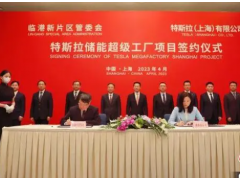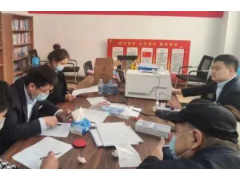On October 10, the third meeting of the RCEP Industrial Cooperation Committee was held online and offline. The "Consensus of the Conference" reached on the day of the meeting emphasized that the signatory countries should earnestly implement the RCEP agreement, strengthen goals and measures, focus on resolving and breaking through constraints, and work together to tap the potential of regional economic growth.
On the same day, Xu Ningning, chairman of the RCEP Industrial Cooperation Committee, said in his speech that since the RCEP agreement came into effect nine months ago, the business circles of countries in the RCEP region are promoting the construction of regional comprehensive economic partnerships through innovative and pragmatic cooperation, and developing regional economic growth potential and space.
Xu Ningning put forward seven suggestions on seizing the opportunity of opening up the RCEP market and enhancing cooperation and development. The "consensus of the meeting" reached after the exchanges between the representatives of the meeting:
1. Effective implementation of the RCEP Agreement and promotion of regional openness, cooperation and development are of great significance to the RCEP signatory countries, to regional development and stability, to the stability of the international situation and to global economic growth. The signatory countries should attach great importance to it, strengthen goals and measures, focus on resolving and breaking through constraints, and work together to tap the potential of regional economic growth and achieve new development.
2. The factors that affect the implementation of RCEP are mainly internal, external and intertwined. The key lies in the internal, the determination and confidence of the signing countries to implement the RCEP agreement out of internal needs, the strength and degree of implementation of the agreement by the signing countries, and regional business The improvement and improvement of the environment, the business measures taken by enterprises to seize the new business opportunities brought about by the opening of the market, the cooperation between the signing countries, and the effect of promoting RCEP to achieve the expected goals. Signatory countries should focus on building RCEP itself so as to achieve the expected purpose of signing RCEP.
3. To effectively implement the RCEP agreement and achieve new development, all signatories need to jointly strengthen cooperation on the three pillars of political security, economy, society and humanities, which is related to shaping a good RCEP regional business environment. Use political cooperation to build a "firewall" for regional economic and security risks; use economic cooperation to develop new growth space and expand the scale of trade and investment; use humanistic cooperation to consolidate the social foundation and favorable human conditions for RCEP implementation. The three pillars support each other and are indispensable.
4. RCEP signatory countries need to organically combine the promotion of RCEP implementation with multilateral and bilateral free trade agreements signed within other regions and with external countries (regions), complement, coordinate and promote each other, and strive to complement each other. Signatory countries need to support and assist enterprises to expand trade and investment cooperation and development in making good use of various free trade agreements to complement, fix, extend, and upgrade industrial chains and supply chains.
5. Take the opportunity of RCEP to take effect, combine concerns, strengthen and accelerate docking, and make cooperation practical and detailed. It is recommended to formulate RCEP regional "Action Plan for Digital Economy Development", "Action Plan for Green Economy Development", "Action Plan for Small and Medium-sized Enterprise Cooperation and Development" and other cooperation Guidance plan; it is recommended to hold the RCEP regional financial cooperation meeting as soon as possible to enhance cooperation and deal with international financial risks.
6. The local government authorities should list the business opportunities combined with the products of the pillar industries in the region according to the country-specific timetable for market opening stipulated in the RCEP implementation of free trade institutional arrangements. Similarly, national industry associations should also list the phased opening of products according to the timetable stipulated in the RCEP agreement in this industry, so as to help enterprises in this industry grasp the situation and seize opening business opportunities.
7. Factors outside the region that affect the implementation of RCEP. On the one hand, the global economic growth is slowing down sharply, and the situation is grim. The implementation of RCEP is facing the risk of damaging the industrial chain and supply chain due to the unstable international environment. On the other hand, under the influence of economic laws and industrial laws, the business circles of the signatory countries are generally optimistic about the business opportunities of RCEP, and multinational companies outside the region have also increased their investment in the RCEP area. RCEP reflects the development needs and trends of multilateral cooperation and free trade in the global economy, and will provide support for world economic growth and make contributions to the RCEP region.
The meeting was presided over by Lu Kejian, executive member of the RCEP Industrial Cooperation Committee and former director of the Asian Department of the Ministry of Commerce of China. Liu Xin, Secretary-General of the RCEP Industrial Cooperation Committee, informed the work of the RCEP Industrial Cooperation Committee. Leaders of relevant industry associations and representatives of entrepreneurs in RCEP countries , Leaders of government departments of relevant countries attended the meeting.




